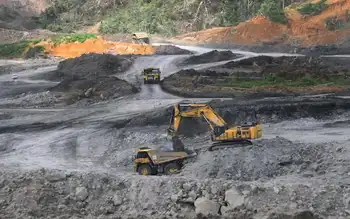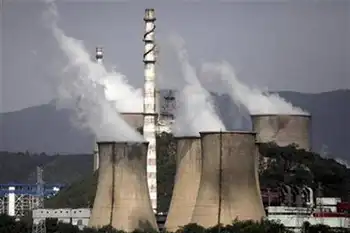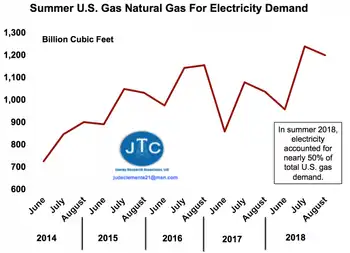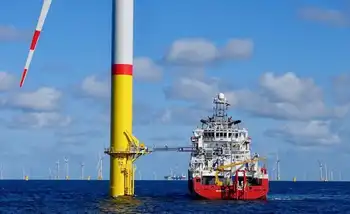U.S. to unveil massive energy bill
WASHINGTON -- - U.S. congressional negotiators have agreed on a sweeping energy bill that would slap mandatory reliability standards on power companies and toss more than $20-billion (U.S.) in incentives at everything from ethanol to an Alaskan natural gas pipeline.
But the long-debated legislation -- a 1,700-page draft of which is to be released today -- is as notable for what's missing as what it contains.
The bill, for example, doesn't open Alaska's remote Arctic Natural Wildlife Refuge to oil and gas drilling -- a pet project of President George W. Bush.
Federal energy regulators have also backed off a plan to impose strict national controls over the electrical grid and tougher fuel emission standards on cars.
"It's sort of like fishing. You get to a big set of waterfalls and you can't fish any more because you can't go up and you can't go down," New Mexico Senator Pete Domenici, chairman of the Senate energy committee, told reporters.
"That's the problem with some of these issues. We can't get them done."
The recent compromise, which comes after more than two years of haggling, clears the way for the House of Representatives to vote on the bill and the Senate to vote, soon after.
The legislation is aimed at boosting domestic production of all forms of energy, including natural gas, coal and nuclear energy.
Details of the most contentious measures are still sketchy. Among the key provisions are tax credits and loan guarantees to encourage producers in Alaska to build a $20-billion natural gas pipeline via Canada to the lower 48 states.
"We are going to build a natural gas pipeline from Alaska to make sure we have the gas this country has become so dependent on," said Billy Tauzin of Louisiana, chairman of the House energy committee.
Mr. Tauzin said the pipeline would increase the country's energy security and create nearly 80,000 direct and indirect jobs.
"This is in essence a jobs bill," he said.
Negotiators, however, scrapped a controversial floor price guarantee for the pipeline sought by ConocoPhillips Co. and Alaska politicians. Ottawa and the Canadian industry had argued that such a guarantee would badly distort the North American gas market and possibly derail plans to tap gas reserves in Canada's far north.
In a statement, U.S. Energy Secretary Spencer Abraham hailed the bill as a "comprehensive and balanced energy bill that reflects the President's energy priorities and will be an important investment in ensuring America's energy security and economic vitality."
A spokesman for Mr. Abraham also vowed that the Bush administration won't abandon its quest to allow drilling in the Arctic National Wildlife Refuge, which is nestled next to the Yukon border.
Democrats in the Senate had vowed to block the energy legislation if it allowed drilling, which was opposed by Ottawa and environmental groups.
Recently, a top Senate Democrat complained that the opposition has been largely shut out of the drafting of the bill.
"I think we're being asked to take it or leave it," said Jeff Bingaman, the ranking Democrat on the Senate energy committee.
Among other key provisions in the legislation:
A mandate requiring the doubling of production of gasoline containing ethanol to five billion gallons by 2012.
A ban on the fuel additive methyl tertiary butyl ether (MTBE) by 2015, along with a shield protecting producers of the chemical from lawsuits.
Mandatory reliability standards for electricity transmission companies, along with penalties.
Royalty relief for companies that pursue natural gas in deep waters of the Gulf of Mexico.
Lucrative incentives to build nuclear plants and clean coal projects.
Incentives for alternative energy sources, including hydrogen fuel cells and wind power.
To promote more energy development, the Republican bill will make it easier to develop oil and gas on federal land.
Some Democrats complained that Republican lawmakers have grossly underestimated the true cost of the legislation's various tax breaks, subsidies and loan guarantees. Edward Markey, a Democrat from Massachusetts, said the legislation would cost U.S. taxpayers more than $115-billion.
Democrats and Republicans have been fighting over energy policy since Mr. Bush took over the White House in 2001, vowing to boost domestic energy production and wean the country off of imported oil.
The legislation appeared permanently stalled until August, when a power blackout hit Canada and the U.S. Midwest and Northeast.
The blackout renewed impetus for a comprehensive energy bill.
Related News

Energy Ministry may lower coal production target as Chinese demand falls
JAKARTA - The Energy and Mineral Resources (ESDM) Ministry is considering lowering the coal production target this year as demand from China has shown a significant decline since the start of the outbreak of the novel coronavirus in the country late last year, a senior ministry official has said.
The ministry’s coal and mineral director general Bambang Gatot Ariyono said in Jakarta on March 12 that the decline in the demand had also caused a sharp drop in coal prices on the world market, which could cause the country’s miners to reduce their production.
The 2020 minerals and coal mining program and…




